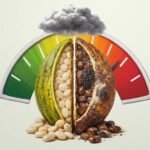For the first time in two years, there is a collective sigh of relief echoing through Africa’s public health community. The World Health Organization (WHO) announced this week that mpox — the viral disease that triggered a global health emergency in 2022 — is no longer considered a threat at the highest international level. The decision marks a milestone in Africa’s ongoing battle with outbreaks that too often remain underreported, underfunded, and overlooked by the rest of the world. But if WHO officials were hoping for unqualified celebration, they didn’t quite get it. Public health experts are warning that the fight is far from over.
Mpox, previously known as monkeypox, has been endemic in parts of Central and West Africa for decades, but it exploded onto the global stage three years ago when cases began appearing in Europe and North America. The international spread led the WHO to declare a Public Health Emergency of International Concern (PHEIC), the same highest-level alert once used for COVID-19. Suddenly, a disease that had been largely ignored by the global North was being taken seriously, research dollars began flowing, and vaccine stockpiles were tapped to contain the outbreak.
The response worked. Global cases have plummeted by more than 90% compared to the 2022 peak, and most affected countries have now dismantled their emergency operations. In Africa, where the disease has historically caused the most harm, surveillance systems have improved, treatment centers have been better equipped, and community awareness campaigns have helped drive earlier detection and care. These steps were crucial not only in reducing mpox cases but also in building capacity for future outbreaks of other diseases.
Still, the decision to lift the emergency designation comes with mixed feelings. African health officials know that the underlying drivers of mpox — such as deforestation, human-wildlife interaction, and weak rural health infrastructure — have not disappeared. If anything, they are intensifying as climate change pushes communities deeper into forested areas and economic pressures increase reliance on bushmeat hunting, a known source of mpox transmission. In short, the conditions that allowed mpox to spill over from animals to humans in the first place are still present.
Another concern is complacency. “We are relieved, but this is not the time to pack up and go home,” said a senior official at the Africa Centres for Disease Control and Prevention (Africa CDC). “The virus has not gone away — it is simply under control. If we let our guard down, it can come roaring back.” It is a sentiment echoed by WHO Director-General Tedros Adhanom Ghebreyesus, who emphasized that the end of the global emergency does not mean the end of mpox.
There are also fears that the international spotlight will now shift elsewhere, leaving African nations to deal with the disease on their own. During the height of the outbreak, vaccines were shipped to dozens of countries, including some in Africa, but distribution was uneven and coverage patchy. Many rural communities never saw a single dose. If mpox returns in a big way, there are doubts about whether the world will respond as urgently as it did when Western countries were at risk.
Nonetheless, there are some clear victories to celebrate. Nigeria, which had been reporting thousands of suspected cases annually, has seen its numbers fall dramatically. The Democratic Republic of Congo, long the epicenter of mpox, has rolled out new community-based surveillance programs that are being hailed as a model for integrating local knowledge into national health systems. And perhaps most importantly, the crisis has forced global health policymakers to confront the moral gap that often separates diseases of the Global South from those that affect wealthy countries.
Mpox may no longer be a global health emergency, but it has left an enduring lesson: the world cannot afford to wait for a virus to cross borders before taking it seriously. For Africa, the challenge now is to keep building on the progress made strengthening laboratories, expanding vaccine production on the continent, and making sure that when the next outbreak comes, the response will be faster, fairer, and less dependent on emergency declarations.
For now, Africa can breathe a little easier but it must keep one eye open. The virus has not been eradicated, just subdued, and public health experts know too well how quickly diseases can make a comeback when the world stops paying attention.











